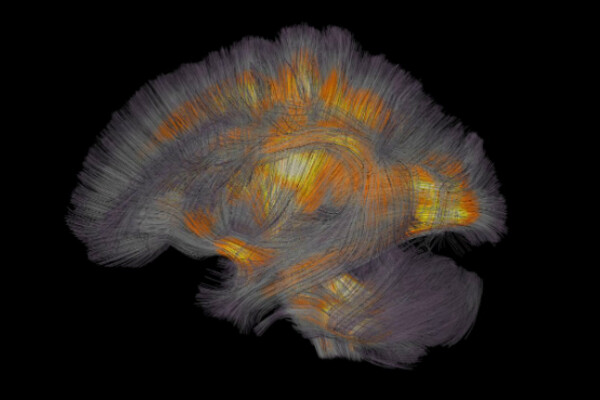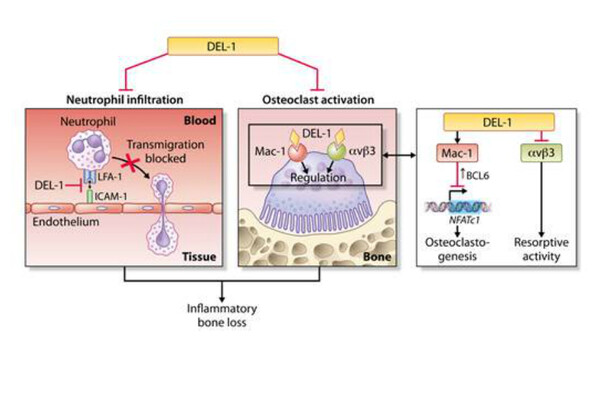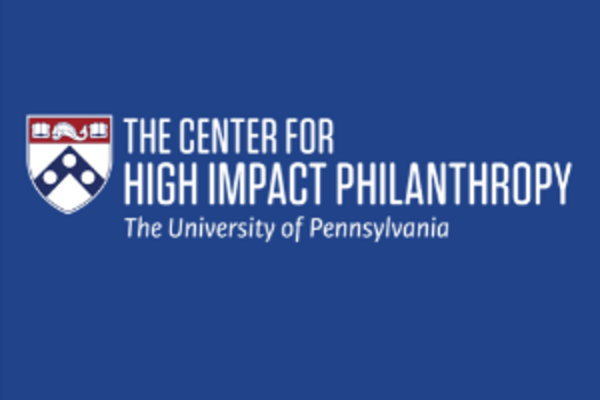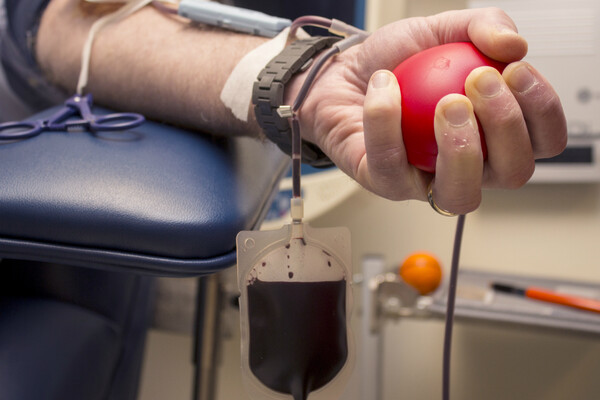5/18
Health Sciences
Penn, University of California and Army Research Lab Show How Brain’s Wiring Leads to Cognitive Control
How does the brain determine which direction to let its thoughts fly? Looking for the mechanisms behind cognitive control of thought, researchers at the University of Pennsylvania, University of California and United States Army Research Laboratory have used brain scans to shed new light on this question.
Penn Dental Medicine Study Produces Low-cost Drug in Lettuce
Biopharmaceuticals, or drugs that are based on whole proteins, are expensive to make and require refrigeration to store. Insulin, for example, is unaffordable and inaccessible to most of the global population.
Penn Dental Medicine Study Blocks Inflammatory Bone Loss in Gum Disease
Periodontitis, a severe form of gum disease, doesn’t just cause soft-tissue inflammation and bleeding. It also destroys the bone that supports the teeth. If it progresses unchecked, it can lead to tooth loss and is even associated with systemic inflammatory conditions like atherosclerosis and rheumatoid arthritis.
Penn Engineers Design Color-Changing Material That Could Help Diagnose Concussions
The precise link between concussions and debilitating conditions like chronic traumatic encephalopathy is still being explored, but as the name suggests, repeated head injuries are a main culprit. Unfortunately, unlike a broken bone or a torn ligament, concussions are invisible and tricky to diagnose.
Puppies Bring Cuteness and Pedigree to Working Dog Center
The Penn Vet Working Dog Center (WDC) recently received an injection of cuteness—and talent. Five Labrador retriever puppies from the “Q litter” reported to the Center to start qualified training on Aug. 21, at exactly 8 weeks old.
Cancer Doesn't Sleep: The Myc Oncogene Disrupts Circadian Rhythm and Metabolism in Cancer Cells, Finds New Penn Study
Myc is a cancer-causing gene responsible for disrupting the normal 24-hour internal rhythm and metabolic pathways in cancer cells, found a team led by researchers from the Perelman School of Medicine at the University of Pennsylvania. Postdoctoral fellow Brian Altman, PhD, and doctoral student Annie Hsieh, MD, both from the lab of senior author Chi Van Dang, MD, PhD, director of the Abramson Cancer Center, study body clock proteins associated with cancer cells.
Penn Center for High Impact Philanthropy Creates Guide for Donating Funds to Combat Substance Abuse
The Center for High Impact Philanthropy at the University of Pennsylvania has developed a free online guide for people who want to save lives by reducing illness and homelessness related to drug or alcohol use, and help more people access the care they need to get better more quickly.
Multiple Myeloma Patients More Vulnerable to 'Financial Toxicity' Due to Expensive, Longer Courses of Treatments, Penn Study Finds
Even patients with health insurance who have multiple myeloma may be vulnerable to “financial toxicity” – including those who make over $100,000 a year – because of the higher use of novel therapeutics and extended duration of myeloma treatment, researchers from Penn’s Abramson Cancer Center report in this week’s
Penn Team Pinpoints Immune Changes in Blood of Melanoma Patients on PD-1 Drugs That Put Potential Biomarker within Reach
A simple blood test can detect early markers of “reinvigorated” T cells and track immune responses in metastatic melanoma patients after initial treatment with the anti-PD-1 drug pembrolizumab, researchers from the Abramson Cancer Center of the University of Pennsylvania report in new research being presented at the inaugural CRI-CIMT-EATI-AACR International Cancer Immunotherapy Conference.
A History Student Makes an Impact in the Operating Room at Penn
It’s not only physicians and nurses who can make a difference in health care. Sometimes it takes a history major and some careful observation to help effect positive change.
In the News
What’s going on with tranq?
Jeanmarie Perron of the Perelman School of Medicine says that the appearance and progression of skin ulcers and tissue loss on xylazine users is different than with other intravenous drugs.
FULL STORY →
It’s time to end the Medicare-Medicaid merry-go-round
In an opinion essay, Rachel M. Werner of the Leonard Davis Institute, Wharton School, and Perelman School of Medicine says that Medicare and Medicaid fail to integrate coverage and coordinate care across their two plans.
FULL STORY →
The quest for treatments to keep weight off after Ozempic
Researchers at Penn are conducting a co-authored study of the brains, fat and muscle cells, and eating patterns of people trying to maintain new body sizes.
FULL STORY →
Inside Penn’s transfer center
Penn Medicine’s transfer command center gets patients from affiliated hospitals and hospitals outside Philadelphia to specialized care that can save lives, with comments from CEO Kevin Mahoney.
FULL STORY →
Operating rooms are major sources of greenhouse gasses. Penn is eliminating a form of anesthesia that hangs in the air for more than a decade after use
Penn Medicine is phasing out the anesthesia desflurane at four of its six hospitals to eliminate harmful greenhouse gases, with remarks from Greg Evans.
FULL STORY →












